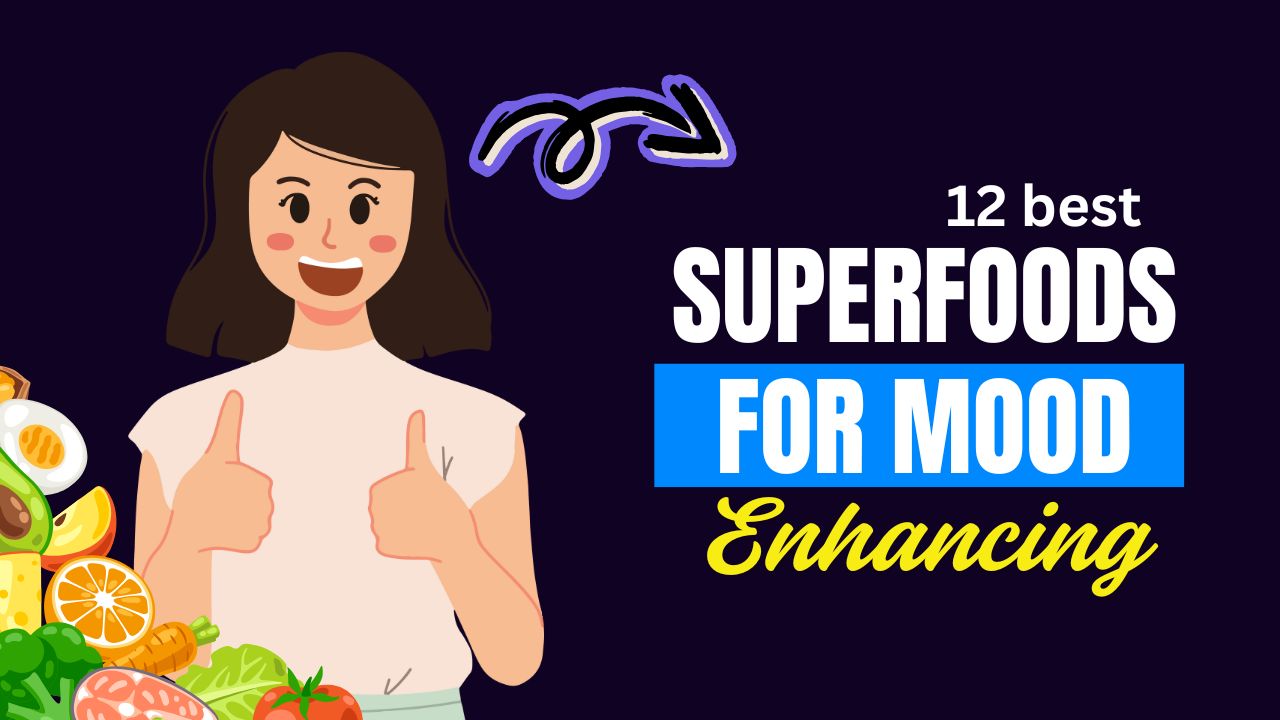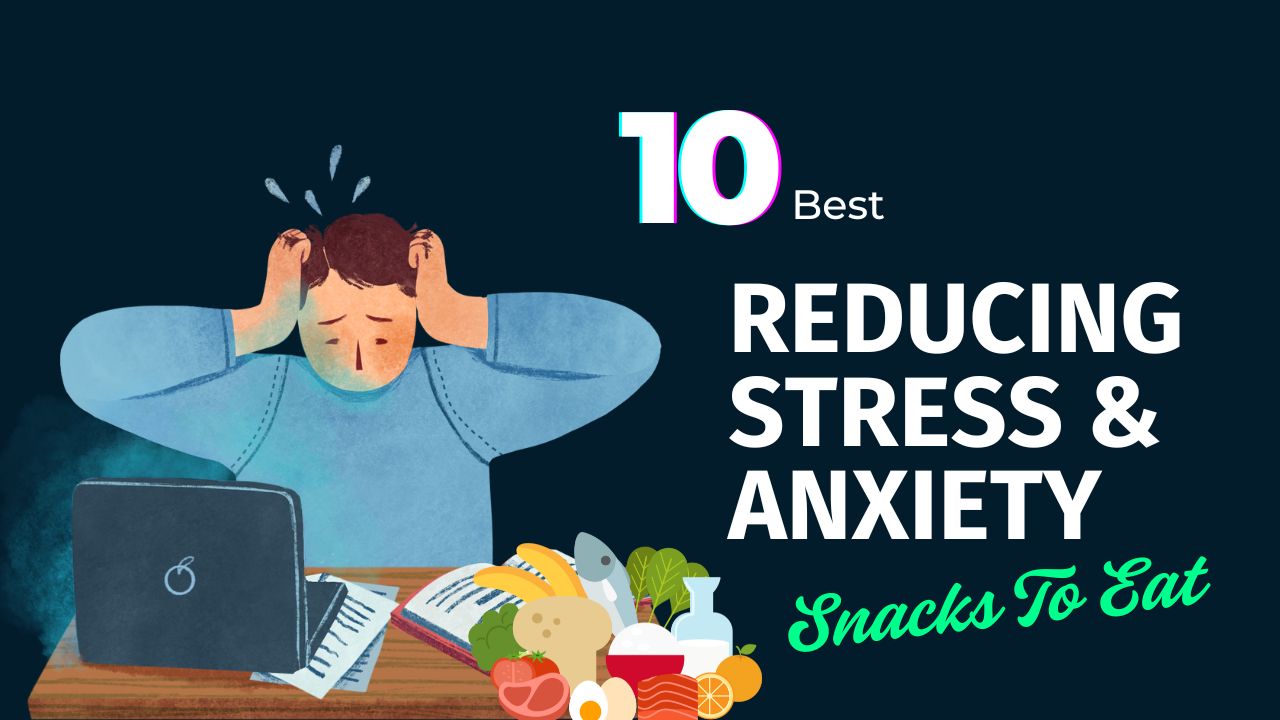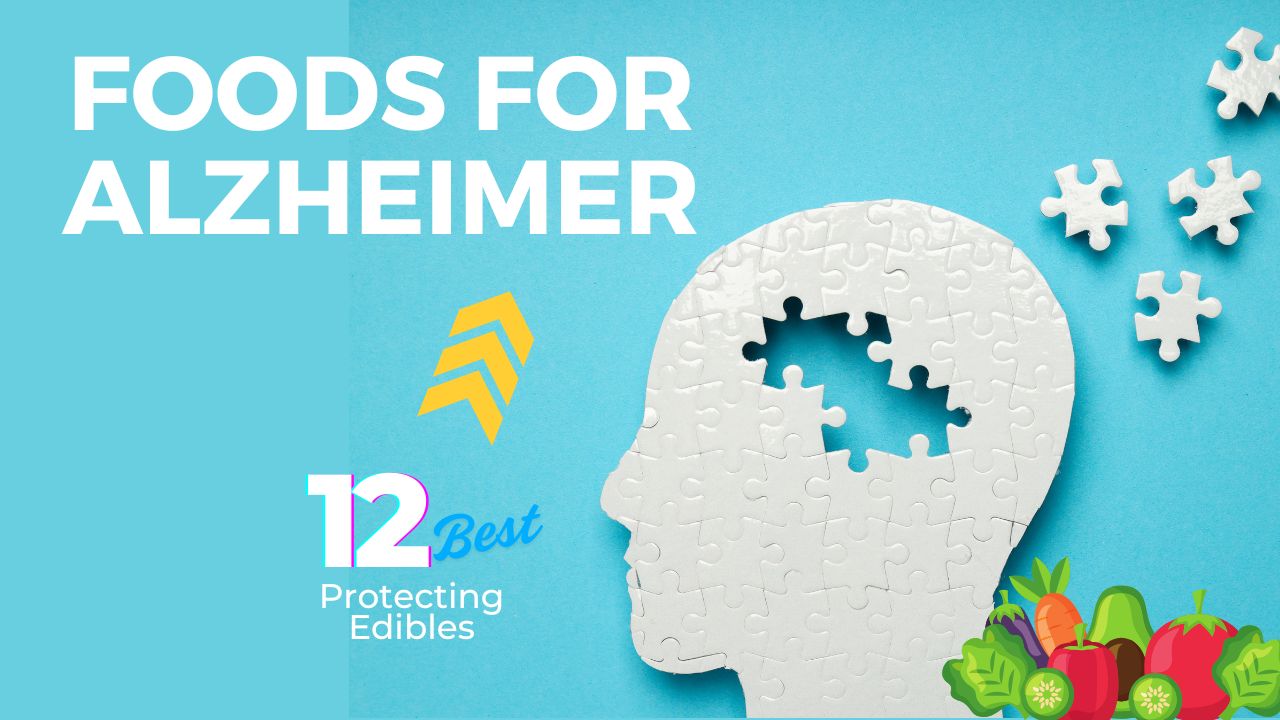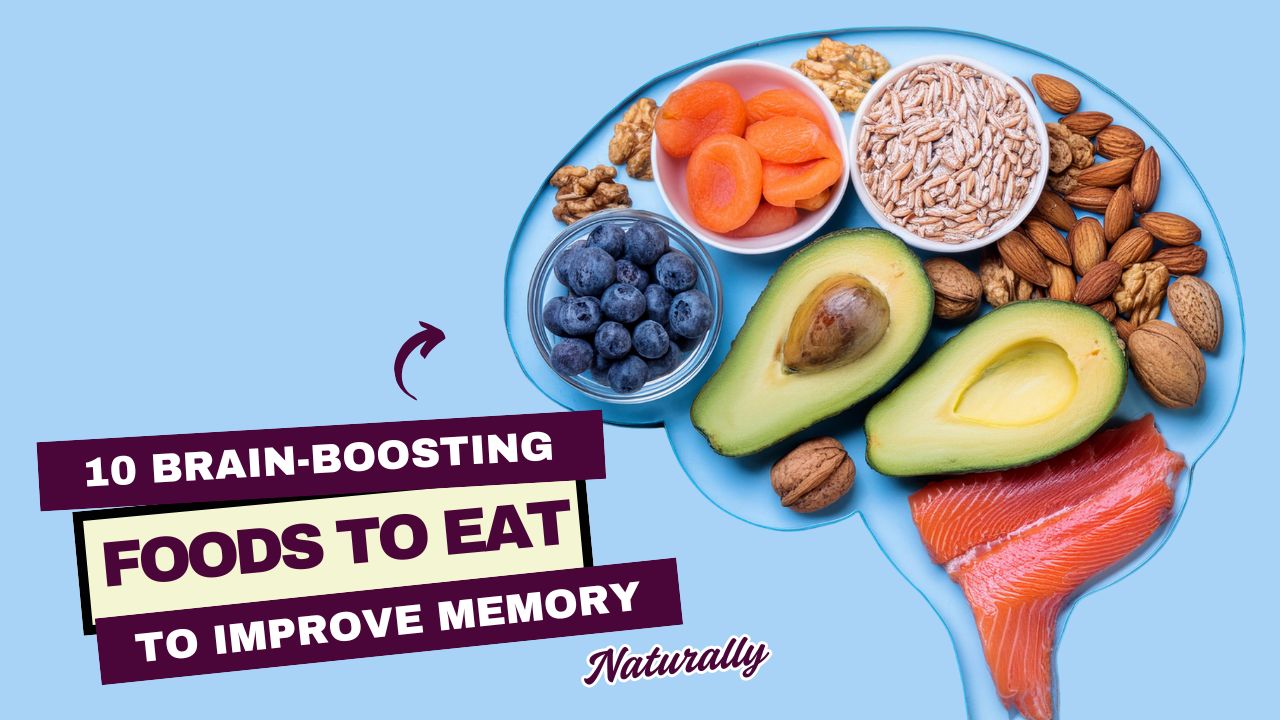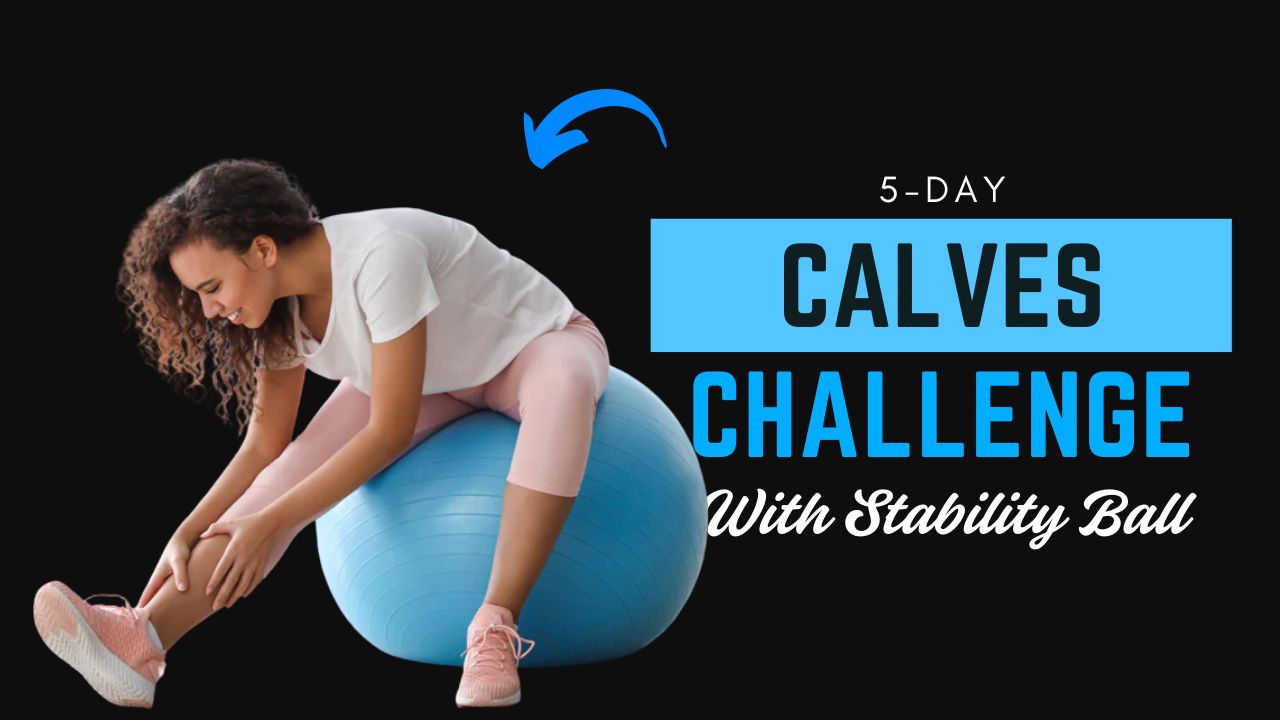Did you know that over 50 million people worldwide suffer from dementia, with Alzheimer’s disease being the most common form?
While genetics play a role, research shows that your diet can significantly impact brain health. Certain foods are proven to support cognitive function, reduce inflammation, and even slow the progression of memory loss.
In this post, we’ll explore the top 12 foods that protect against Alzheimer’s and dementia, how to incorporate them into your diet, and key tips for maximizing their benefits. These are not just ordinary foods—they’re your brain’s best allies.
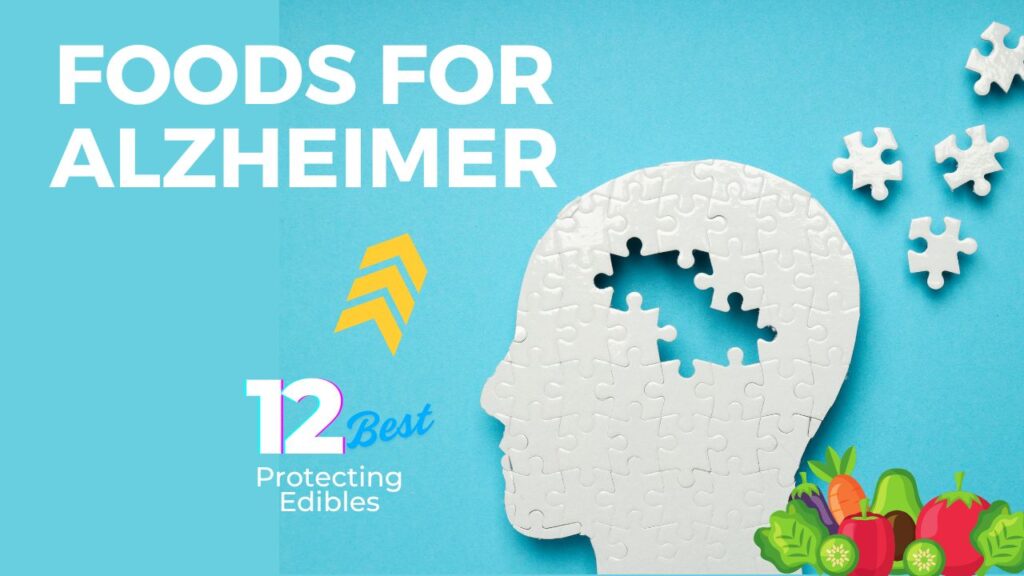
Table of Contents
12 Best For Alzheimer’s & Dementia
1. Blueberries
Why they help: Blueberries are packed with antioxidants, especially flavonoids, which help reduce oxidative stress in the brain—a major contributor to cognitive decline.
Best Ways to Eat or Use It:
- Add fresh or frozen blueberries to smoothies, oatmeal, or yogurt.
- Blend into sauces for pancakes or desserts.
Tips: Pair with a little fat, such as nuts or yogurt, to improve absorption of fat-soluble antioxidants.
Who Should Eat / Avoid:
- Good for: adults of all ages, seniors, and anyone looking to improve memory and focus.
- Avoid if: you have a blueberry allergy.
Storage & Buying Tips:
- Choose firm, plump berries with a deep blue color.
- Store in the refrigerator for up to a week or freeze for long-term use.
Do’s & Don’ts (Quick Table)
| ✅ Do | ❌ Don’t |
|---|---|
| Eat fresh or frozen | Consume only in sugary desserts |
| Pair with healthy fats | Overcook in pies or muffins |
Possible Side Effects: Generally safe, but may cause mild stomach upset if eaten in large amounts.
2. Fatty Fish (Salmon, Sardines, Mackerel)
Why they help: Rich in omega-3 fatty acids, particularly DHA, fatty fish support neuronal health and reduce inflammation linked to Alzheimer’s disease.
Best Ways to Eat or Use It:
- Grill, bake, or poach salmon for a brain-boosting dinner.
- Add canned sardines or mackerel to salads or sandwiches.
Tips: Aim for 2–3 servings per week. Combine with antioxidant-rich foods like leafy greens to maximize effects.
Who Should Eat / Avoid:
- Good for: anyone wanting improved cognitive function, heart health, or mood regulation.
- Avoid if: allergic to fish or have mercury sensitivity (choose low-mercury options).
Storage & Buying Tips:
- Buy fresh fish with a mild scent and firm texture.
- Store in the refrigerator for 1–2 days or freeze for up to 3 months.
Do’s & Don’ts
| ✅ Do | ❌ Don’t |
|---|---|
| Eat grilled or baked | Fry excessively |
| Rotate fish types | Eat high-mercury fish frequently |
Possible Side Effects: Overconsumption may lead to mercury exposure in certain fish; consult your doctor if pregnant.
3. Leafy Greens (Spinach, Kale, Swiss Chard)
Why they help: Leafy greens are rich in vitamins K, E, and folate, which improve cognitive function and may slow brain aging.
Best Ways to Eat or Use It:
- Include in salads, smoothies, soups, or stir-fries.
- Lightly steam to preserve nutrients.
Tips: Vitamin K is fat-soluble; pair with olive oil to improve absorption.
Who Should Eat / Avoid:
- Good for: seniors, pregnant women, vegetarians.
- Avoid if: taking blood-thinning medication (consult doctor regarding vitamin K).
Storage & Buying Tips:
- Choose vibrant green, crisp leaves.
- Store in the refrigerator in a perforated bag to extend freshness.
Do’s & Don’ts
| ✅ Do | ❌ Don’t |
|---|---|
| Eat raw or lightly cooked | Boil excessively |
| Pair with healthy fats | Use old or wilted leaves |
Possible Side Effects: May interfere with blood thinners; may cause mild gas in sensitive individuals.
4. Walnuts
Why they help: Walnuts are high in DHA, antioxidants, and polyphenols that support memory and protect the brain from oxidative stress.
Best Ways to Eat or Use It:
- Snack on a handful daily.
- Chop and add to oatmeal, salads, or baked goods.
Tips: Toast lightly to enhance flavor but avoid over-roasting.
Who Should Eat / Avoid:
- Good for: anyone looking to boost brain health.
- Avoid if: nut allergies.
Storage & Buying Tips:
- Buy raw, unsalted walnuts.
- Store in an airtight container in the fridge to prevent rancidity.
Do’s & Don’ts
| ✅ Do | ❌ Don’t |
|---|---|
| Eat raw or lightly toasted | Eat salted or heavily roasted |
| Pair with fruit or yogurt | Store at room temperature long-term |
Possible Side Effects: Can cause digestive upset in large amounts; high in calories.
5. Turmeric
Why it helps: Curcumin, the active compound in turmeric, has anti-inflammatory and antioxidant properties that protect against Alzheimer’s pathology.
Best Ways to Eat or Use It:
- Add turmeric to curries, soups, or smoothies.
- Pair with black pepper to increase curcumin absorption.
Who Should Eat / Avoid:
- Good for: adults concerned about inflammation or cognitive decline.
- Avoid if: gallstones or bleeding disorders (consult doctor).
Storage & Buying Tips:
- Choose bright yellow-orange powder.
- Store in a cool, dark place in a sealed container.
Do’s & Don’ts
| ✅ Do | ❌ Don’t |
|---|---|
| Combine with black pepper | Overcook for long periods |
| Use fresh or powdered | Rely only on supplements |
Possible Side Effects: High doses may cause stomach upset or increase bleeding risk.
6. Broccoli
Why it helps: Broccoli contains antioxidants and vitamin K, which supports brain cell health and cognitive function.
Best Ways to Eat or Use It:
- Steam lightly or add to stir-fries.
- Include in salads or soups.
Tips: Avoid overcooking to preserve sulforaphane, the key antioxidant.
Who Should Eat / Avoid:
- Good for: adults, seniors, children.
- Avoid if: prone to gas or bloating; cruciferous vegetables can cause digestive discomfort.
Storage & Buying Tips:
- Choose firm, dark green heads.
- Store in the fridge for up to a week.
Do’s & Don’ts
| ✅ Do | ❌ Don’t |
|---|---|
| Eat raw or lightly cooked | Boil extensively |
| Pair with lemon juice | Keep for too long |
Possible Side Effects: May cause mild bloating or gas.
7. Pumpkin Seeds
Why they help: High in magnesium, iron, zinc, and antioxidants that support brain function and memory retention.
Best Ways to Eat or Use It:
- Snack on roasted or raw seeds.
- Sprinkle on salads, oatmeal, or yogurt.
Tips: Roast at low temperatures to preserve nutrients.
Who Should Eat / Avoid:
- Good for: students, seniors, anyone needing a brain boost.
- Avoid if: pumpkin seed allergy.
Storage & Buying Tips:
- Store in airtight containers, refrigerate for freshness.
Do’s & Don’ts
| ✅ Do | ❌ Don’t |
|---|---|
| Eat raw or roasted | Add excessive salt |
| Mix with nuts | Leave exposed to air |
Possible Side Effects: Can cause stomach upset in excess.
8. Dark Chocolate
Why it helps: Rich in flavonoids that increase blood flow to the brain and improve cognitive function.
Best Ways to Eat or Use It:
- Enjoy 70%+ cocoa dark chocolate as a small snack.
- Use in desserts or smoothies.
Tips: Moderate intake is key—small amounts are beneficial.
Who Should Eat / Avoid:
- Good for: adults seeking cognitive support and mood enhancement.
- Avoid if: sensitive to caffeine or sugar.
Storage & Buying Tips:
- Store in a cool, dry place away from sunlight.
Do’s & Don’ts
| ✅ Do | ❌ Don’t |
|---|---|
| Eat in moderation | Eat milk chocolate instead |
| Pair with nuts | Overconsume for quick sugar fix |
Possible Side Effects: May increase heart rate or cause jitteriness if consumed in large amounts.
9. Green Tea
Why it helps: Contains L-theanine and antioxidants that protect neurons and improve focus.
Best Ways to Eat or Use It:
- Drink 1–3 cups daily.
- Use in smoothies or matcha desserts.
Tips: Avoid boiling water directly on leaves to preserve catechins.
Who Should Eat / Avoid:
- Good for: adults seeking memory support.
- Avoid if: sensitive to caffeine.
Storage & Buying Tips:
- Buy loose leaves or high-quality bags.
- Store in airtight containers away from heat and light.
Do’s & Don’ts
| ✅ Do | ❌ Don’t |
|---|---|
| Steep gently | Overboil leaves |
| Drink without sugar | Drink excessive amounts |
Possible Side Effects: Can cause insomnia or stomach upset if overconsumed.
10. Eggs
Why they help: Eggs are rich in choline, which supports neurotransmitter production and memory.
Best Ways to Eat or Use It:
- Boil, poach, scramble, or add to salads.
- Use in breakfast bowls or sandwiches.
Tips: Include yolk to benefit from choline.
Who Should Eat / Avoid:
- Good for: adults, seniors, pregnant women.
- Avoid if: cholesterol issues (consult doctor).
Storage & Buying Tips:
- Store in the refrigerator in original carton for up to 5 weeks.
Do’s & Don’ts
| ✅ Do | ❌ Don’t |
|---|---|
| Eat cooked or boiled | Overcook yolk |
| Include in balanced diet | Fry in excessive oil |
Possible Side Effects: High intake may raise cholesterol in some individuals.
11. Oranges
Why they help: High in vitamin C, which fights free radicals and supports brain health.
Best Ways to Eat or Use It:
- Eat fresh, make juice, or add slices to salads.
Tips: Consume whole fruit for fiber benefits.
Who Should Eat / Avoid:
- Good for: all ages, especially seniors.
- Avoid if: citrus allergy or acid reflux.
Storage & Buying Tips:
- Choose firm, bright orange fruit.
- Store in the fridge to extend freshness.
Do’s & Don’ts
| ✅ Do | ❌ Don’t |
|---|---|
| Eat fresh | Rely only on juice |
| Pair with other fruits | Store at room temp for too long |
Possible Side Effects: Excessive intake may cause acid reflux in sensitive people.
12. Avocados
Why they help: Packed with healthy monounsaturated fats, vitamin E, and folate, which support brain health and prevent cognitive decline.
Best Ways to Eat or Use It:
- Add to salads, smoothies, or toast.
- Mash for spreads or dips.
Tips: Combine with citrus or tomatoes to enhance antioxidant absorption.
Who Should Eat / Avoid:
- Good for: adults, seniors, vegetarians.
- Avoid if: avocado allergy.
Storage & Buying Tips:
- Choose slightly firm fruit.
- Store unripe at room temp, ripe in fridge for up to 3 days.
Do’s & Don’ts
| ✅ Do | ❌ Don’t |
|---|---|
| Eat fresh or in salads | Fry in excessive oil |
| Combine with vitamin C foods | Store too long at room temp |
Possible Side Effects: Overconsumption may cause digestive discomfort or weight gain.
Conclusion
Incorporating these 12 brain-boosting foods into your daily diet can help protect against Alzheimer’s and dementia while supporting overall cognitive health.
From antioxidant-rich blueberries to omega-3-packed fish and nutrient-dense leafy greens, each of these foods plays a unique role in keeping your brain sharp.
Start small—add one or two of these foods to your meals each day, experiment with recipes, and notice the benefits over time. Your brain will thank you!
Frequently Asked Questions (FAQs)
Can diet really prevent Alzheimer’s disease?
While diet alone cannot guarantee prevention, research shows that eating brain-healthy foods rich in antioxidants, omega-3s, and vitamins can significantly reduce the risk and slow cognitive decline.
How often should I eat these brain-boosting foods?
Aim to include a variety daily or at least several times a week. For example, have berries or leafy greens every day and fatty fish 2–3 times per week.
Are supplements as effective as these foods?
Whole foods provide a complex mix of nutrients, fiber, and antioxidants that supplements often cannot fully replicate. Supplements can be useful in some cases, but foods should be the primary source.
Is it too late to start if I’m already older?
It’s never too late! Even adults in their 60s and 70s can benefit from a nutrient-rich diet that supports brain function.
Are these foods safe for everyone?
Most are safe, but some may need caution: for example, fish if allergic or high in mercury, or leafy greens if on blood thinners. Always consult a doctor if you have medical conditions.
Can children benefit from these foods too?
Yes! Early brain development benefits from nutrients like omega-3s, antioxidants, and vitamins, so including some of these foods in children’s diets is highly beneficial.
How should I combine these foods for maximum benefit?
Pair fat-soluble vitamins with healthy fats (e.g., olive oil with leafy greens) and combine antioxidants (e.g., berries with nuts) to enhance absorption and effectiveness.
Are there any foods that increase Alzheimer’s risk?
Yes, diets high in processed foods, added sugars, and trans fats may increase inflammation and cognitive decline. Limiting these while focusing on brain-friendly foods is recommended.
How soon can I see results from eating these foods?
Cognitive improvements are gradual. Consistent intake over weeks to months may help memory, focus, and overall brain health.
Can cooking destroy the nutrients in these brain foods?
Some nutrients are heat-sensitive (like vitamin C in oranges or antioxidants in broccoli), so light cooking or consuming raw can preserve more nutrients. Pairing with healthy fats can also improve absorption.
